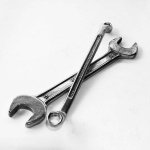The Benefits of Automatic Lubrication Vs Manual Lube
If you are like most business owners, you try to avoid unnecessary spending as much as possible. When you look at a process like lubrication, it can be easy to assume, “If it ain’t broke, don’t fix it.” Why bother with the added expense of an automatic lubrication system when you have been doing it manually for years? In reality, there are some significant benefits automatic lubrication offers that can save you time and money—benefits that manual lubrication cannot match.
The Importance of Proper Lubrication
You know that you need to lubricate machinery to keep it running properly, but greasing the wheels is about more than just the here and now. It minimizes friction, the big enemy of all your equipment. Friction leads to wear and tear that will compromise the life of your machinery. In other words, friction costs you money.
Of course, there is more to lubing equipment than squeezing the handle of a grease gun. You need to use the proper lubricant for the application, being careful not to apply too little or too much. It needs to be applied at specific times and at specific points. And you have to use the correct method when applying it.
What Automatic Lubrication Offers
1. Preventing contamination.
The purpose of the lubricant you apply is to minimize friction, but contaminants can compromise that purpose. The only thing you want to inject into your fluid power systems components like bearings, bushings, or wear points is the specific product indicated by the manufacturer. Anything else could damage the system. Grease contamination is a real danger when you choose the manual route. You have to be quite careful to shield the grease from anything in the surrounding environment. When you consider that you might need to apply grease once a week, you can see how many chances there are for contamination to happen.
Automatic systems, in contrast, are much less likely to be contaminated. You change out the lubricant far less often, greatly minimizing the opportunities for issue to arise.
2. Keeping waste to a minimum.
The proper amount of lubricant for a point in your system will often be difficult to accurately apply with a manual grease gun. It is pretty difficult to only squeeze a grease gun part of the way, and impossible to be certain of your measurements if you do attempt a partial squeeze. For instance, if you need to inject two grams a week and your gun delivers 1.5 grams per pump, you will wind up using three grams of grease with each application—one more than is required, each and every application. That is 52 grams of wasted grease over the course of a year, for just one application.
3. Ensuring optimal lubrication.
Each lubrication point requires a specific amount of grease at a specific time. While you can certainly rely on a technician to take care of the job as needed, there is always the possibility of human error. If the technician makes a mistake, there will be consequences. They may be quite minor, or major. Regardless, these mistakes add up over time to increased wear in your system.
Automatic lubrication does as it is programmed to do, with unerring consistency. The right amount is applied at the time you program. Your system is optimally lubricated, which ensures that it operates correctly and that components last as long as possible.
4. Saving labor costs.
Having a technician manually apply lubricant is not necessarily the best use of his or her time. If he or she is not squeezing a grease gun, the tech could be overseeing the entire lubrication system, analyzing it for leaks, determining improvements and more. You could have fewer techs but each tech could have a better skillset, saving you money and improving productivity.
5. Lessening environmental impact.
Most lubricants are not great for the environment. As discussed above, an automatic system can greatly reduce the amount of lubricant used in some applications over a manual system. That means you only have to use as much as needed, and no more. It also lessens the amount of grease that comes out of the system due to over-lubrication, which has a tendency to wind up where it should not.
If you are not familiar with automatic lubrication systems, choosing the right system for your needs can be a bit overwhelming. At AHE we have the expertise in fluid power and automatic systems required to help you pick the ideal option for your business. Most applications we see for auto lube systems deal with heavy use items such as large machinery, industrial pressing, conveyor lines, etc. Air & Hydraulic Equipments is a distributor for Lincoln-SKF, a popular brand in the industry and have a lube industry expert on staff. Please contact us to speak to a team member today!










